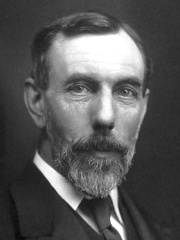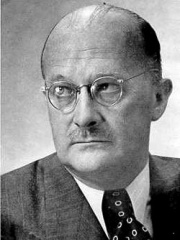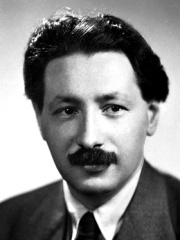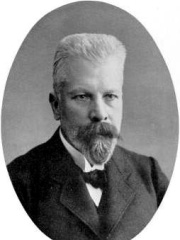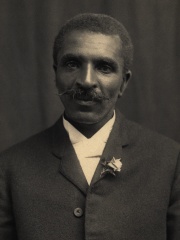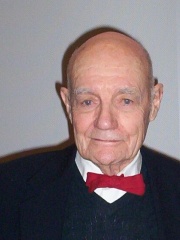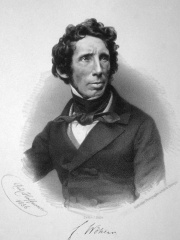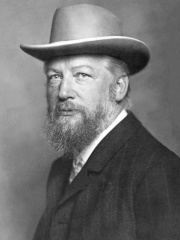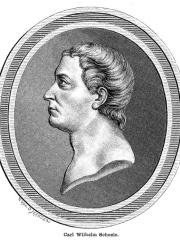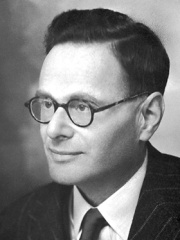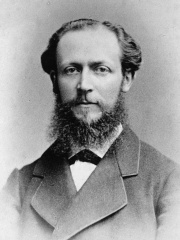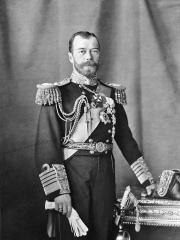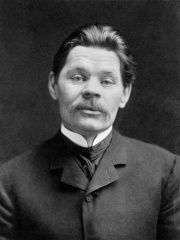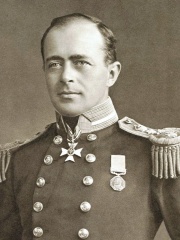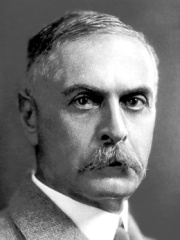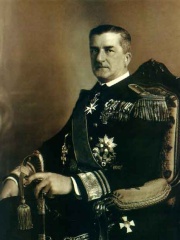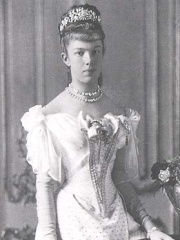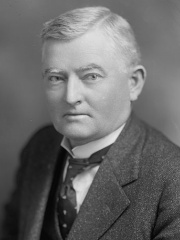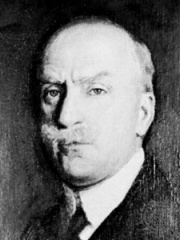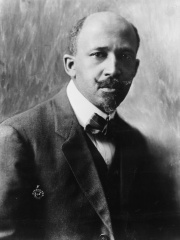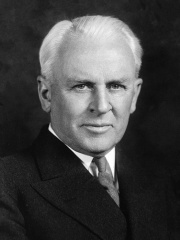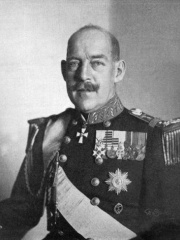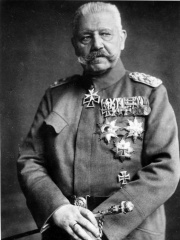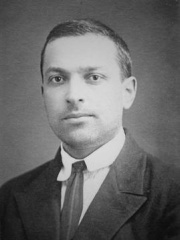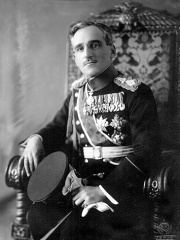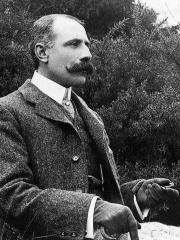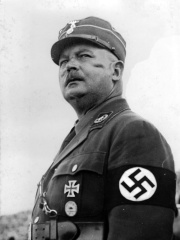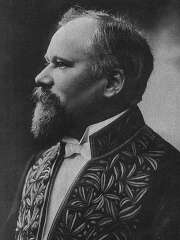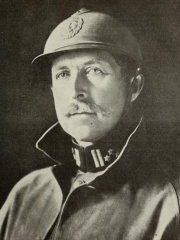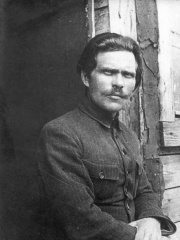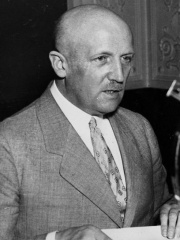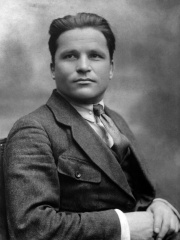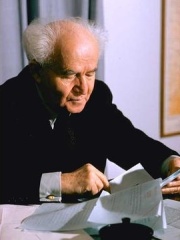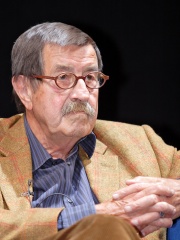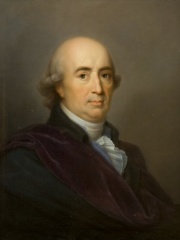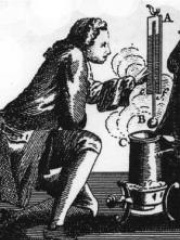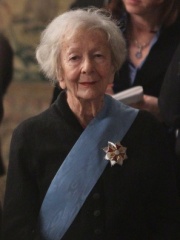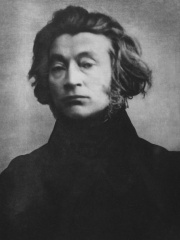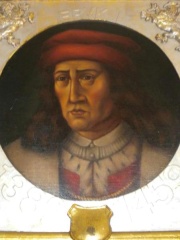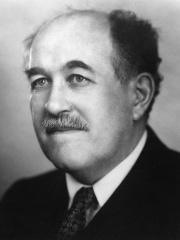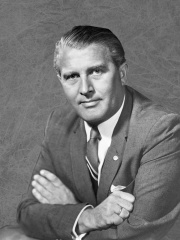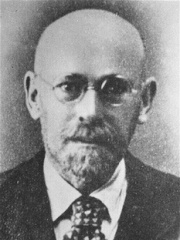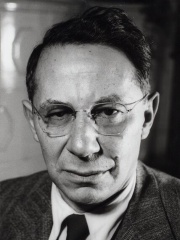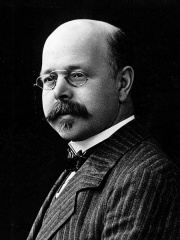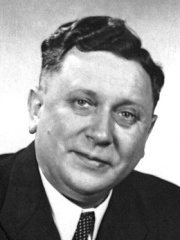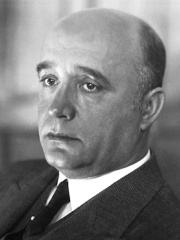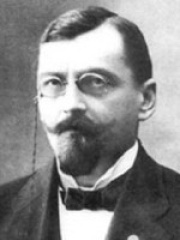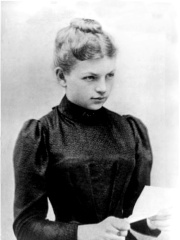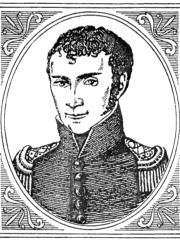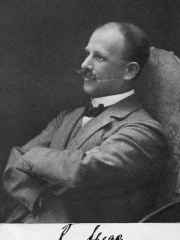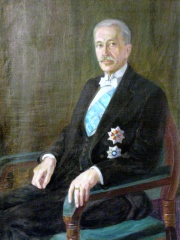Chemist
Fritz Haber
1868 - 1934
EN.WIKIPEDIA PAGE VIEWS (PV)
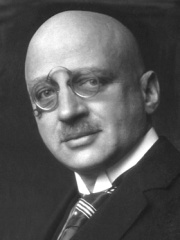
 Fritz Haber
Fritz Haber
His biography is available in 85 different languages on Wikipedia (up from 83 in 2024). Fritz Haber is the 25th most popular chemist (down from 12th in 2024), the 19th most popular biography from Poland (down from 15th in 2019) and the most popular Polish Chemist.
Fritz Haber is most famous for inventing a process to synthesize ammonia from nitrogen and hydrogen. This process was important because it allowed the production of fertilizer for food production.
Memorability Metrics
Page views of Fritz Haber by language
Among Chemists
Among chemists, Fritz Haber ranks 25 out of 602. Before him are William Ramsay, Adolf Windaus, Ernst Chain, Eduard Buchner, John Macleod, and George Washington Carver. After him are John Fenn, Friedrich Wöhler, Wilhelm Ostwald, Carl Wilhelm Scheele, Hans Adolf Krebs, and Otto Wallach.
Most Popular Chemists in Wikipedia
Go to all RankingsWilliam Ramsay
1852 - 1916
HPI: 79.11
Rank: 19
Adolf Windaus
1876 - 1959
HPI: 78.89
Rank: 20
Ernst Chain
1906 - 1979
HPI: 78.79
Rank: 21
Eduard Buchner
1860 - 1917
HPI: 78.78
Rank: 22
John Macleod
1876 - 1935
HPI: 78.77
Rank: 23
George Washington Carver
1864 - 1943
HPI: 78.70
Rank: 24
Fritz Haber
1868 - 1934
HPI: 78.61
Rank: 25
John Fenn
1917 - 2010
HPI: 78.47
Rank: 26
Friedrich Wöhler
1800 - 1882
HPI: 78.43
Rank: 27
Wilhelm Ostwald
1853 - 1932
HPI: 78.43
Rank: 28
Carl Wilhelm Scheele
1742 - 1786
HPI: 78.35
Rank: 29
Hans Adolf Krebs
1900 - 1981
HPI: 78.34
Rank: 30
Otto Wallach
1847 - 1931
HPI: 78.30
Rank: 31
Contemporaries
Among people born in 1868, Fritz Haber ranks 6. Before him are Nicholas II of Russia, Maxim Gorky, Robert Falcon Scott, Karl Landsteiner, and Miklós Horthy. After him are Archduchess Marie Valerie of Austria, John Nance Garner, Abdulmejid II, W. E. B. Du Bois, Robert Andrews Millikan, and Constantine I of Greece. Among people deceased in 1934, Fritz Haber ranks 6. Before him are Marie Curie, Paul von Hindenburg, Lev Vygotsky, Alexander I of Yugoslavia, and Edward Elgar. After him are Ernst Röhm, Raymond Poincaré, Albert I of Belgium, Nestor Makhno, Kurt von Schleicher, and Sergey Kirov.
Others Born in 1868
Go to all RankingsNicholas II of Russia
POLITICIAN
1868 - 1918
HPI: 87.96
Rank: 1
Maxim Gorky
WRITER
1868 - 1936
HPI: 82.46
Rank: 2
Robert Falcon Scott
EXPLORER
1868 - 1912
HPI: 80.52
Rank: 3
Karl Landsteiner
BIOLOGIST
1868 - 1943
HPI: 79.16
Rank: 4
Miklós Horthy
POLITICIAN
1868 - 1957
HPI: 78.81
Rank: 5
Fritz Haber
CHEMIST
1868 - 1934
HPI: 78.61
Rank: 6
Archduchess Marie Valerie of Austria
POLITICIAN
1868 - 1924
HPI: 78.56
Rank: 7
John Nance Garner
POLITICIAN
1868 - 1967
HPI: 78.15
Rank: 8
Abdulmejid II
POLITICIAN
1868 - 1944
HPI: 77.78
Rank: 9
W. E. B. Du Bois
SOCIAL ACTIVIST
1868 - 1963
HPI: 77.66
Rank: 10
Robert Andrews Millikan
PHYSICIST
1868 - 1953
HPI: 76.61
Rank: 11
Constantine I of Greece
POLITICIAN
1868 - 1923
HPI: 76.14
Rank: 12
Others Deceased in 1934
Go to all RankingsMarie Curie
PHYSICIST
1867 - 1934
HPI: 94.30
Rank: 1
Paul von Hindenburg
POLITICIAN
1847 - 1934
HPI: 81.91
Rank: 2
Lev Vygotsky
PSYCHOLOGIST
1896 - 1934
HPI: 80.34
Rank: 3
Alexander I of Yugoslavia
POLITICIAN
1888 - 1934
HPI: 80.02
Rank: 4
Edward Elgar
COMPOSER
1857 - 1934
HPI: 79.61
Rank: 5
Fritz Haber
CHEMIST
1868 - 1934
HPI: 78.61
Rank: 6
Ernst Röhm
MILITARY PERSONNEL
1887 - 1934
HPI: 77.03
Rank: 7
Raymond Poincaré
POLITICIAN
1860 - 1934
HPI: 76.89
Rank: 8
Albert I of Belgium
POLITICIAN
1875 - 1934
HPI: 76.09
Rank: 9
Nestor Makhno
MILITARY PERSONNEL
1888 - 1934
HPI: 75.47
Rank: 10
Kurt von Schleicher
POLITICIAN
1882 - 1934
HPI: 74.97
Rank: 11
Sergey Kirov
POLITICIAN
1886 - 1934
HPI: 74.37
Rank: 12
In Poland
Among people born in Poland, Fritz Haber ranks 19 out of NaN. Before him are David Ben-Gurion (1886), Günter Grass (1927), Johann Gottfried Herder (1744), Henryk Sienkiewicz (1846), Daniel Gabriel Fahrenheit (1686), and Wisława Szymborska (1923). After him are Adam Mickiewicz (1798), Eric of Pomerania (1381), Otto Stern (1888), Wernher von Braun (1912), Janusz Korczak (1878), and Isaac Bashevis Singer (1902).
Others born in Poland
Go to all RankingsDavid Ben-Gurion
POLITICIAN
1886 - 1973
HPI: 81.57
Rank: 13
Günter Grass
WRITER
1927 - 2015
HPI: 80.42
Rank: 14
Johann Gottfried Herder
PHILOSOPHER
1744 - 1803
HPI: 79.32
Rank: 15
Henryk Sienkiewicz
WRITER
1846 - 1916
HPI: 79.31
Rank: 16
Daniel Gabriel Fahrenheit
PHYSICIST
1686 - 1736
HPI: 79.17
Rank: 17
Wisława Szymborska
WRITER
1923 - 2012
HPI: 78.89
Rank: 18
Fritz Haber
CHEMIST
1868 - 1934
HPI: 78.61
Rank: 19
Adam Mickiewicz
WRITER
1798 - 1855
HPI: 78.60
Rank: 20
Eric of Pomerania
PIRATE
1381 - 1459
HPI: 78.58
Rank: 21
Otto Stern
PHYSICIST
1888 - 1969
HPI: 78.32
Rank: 22
Wernher von Braun
ENGINEER
1912 - 1977
HPI: 77.92
Rank: 23
Janusz Korczak
WRITER
1878 - 1942
HPI: 77.74
Rank: 24
Isaac Bashevis Singer
WRITER
1902 - 1991
HPI: 77.49
Rank: 25
Among Chemists In Poland
Among chemists born in Poland, Fritz Haber ranks 1. After him are Tadeusz Reichstein (1897), Walther Nernst (1864), Kurt Alder (1902), Friedrich Bergius (1884), Konrad Emil Bloch (1912), Casimir Funk (1884), Antoni Grabowski (1857), Clara Immerwahr (1870), Johann Wilhelm Ritter (1776), Richard Abegg (1869), and Ignacy Mościcki (1867).
Fritz Haber
1868 - 1934
HPI: 78.61
Rank: 1
Tadeusz Reichstein
1897 - 1996
HPI: 77.04
Rank: 2
Walther Nernst
1864 - 1941
HPI: 76.12
Rank: 3
Kurt Alder
1902 - 1958
HPI: 75.78
Rank: 4
Friedrich Bergius
1884 - 1949
HPI: 74.25
Rank: 5
Konrad Emil Bloch
1912 - 2000
HPI: 73.65
Rank: 6
Casimir Funk
1884 - 1967
HPI: 71.73
Rank: 7
Antoni Grabowski
1857 - 1921
HPI: 71.32
Rank: 8
Clara Immerwahr
1870 - 1915
HPI: 69.87
Rank: 9
Johann Wilhelm Ritter
1776 - 1810
HPI: 69.10
Rank: 10
Richard Abegg
1869 - 1910
HPI: 68.55
Rank: 11
Ignacy Mościcki
1867 - 1946
HPI: 68.48
Rank: 12
